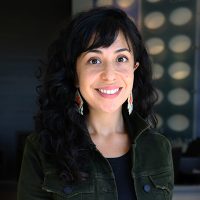Blue Cross launches partnership to increase access to culturally responsive mental healthcare
July 20, 2022This summer, Blue Cross and Blue Shield of Minnesota announced a partnership with Hurdle Health to provide free, culturally responsive mental healthcare to residents of Brooklyn Center.
mental healthcare to residents of Brooklyn Center.
Traditional forms of therapy are often not designed with cultural humility in mind and can perpetuate systemic barriers to mental healthcare for Black, Indigenous, and communities of color (BIPOC). Hurdle Health was created to meet the unique needs of BIPOC communities and create a safe space where all people can feel seen, heard and understood. Hurdle offers its care virtually to increase access and reduce the stigma of receiving mental healthcare.
Residents of Brooklyn Center now have access to culturally responsive and trauma informed teletherapy through Hurdle Health at no cost. This effort is part of Blue Cross’s five-year, place-based partnership with the city of Brooklyn Center. Brooklyn Center is the second most racially diverse city in Minnesota and the only city that has both a Black mayor and a Black city manager. Additionally, Brooklyn Center has been disproportionally impacted by the COVID-19 pandemic and racial injustice, which has taken a serious toll on the mental health of the community.

What is culturally responsive therapy?
Culturally responsive therapy puts culture and the lived experiences of clients at the forefront. Hurdle offers a model of therapy that equips therapists with the skills needed to effectively address issues of race, ethnicity, class and culture. Hurdle ensures that BIPOC individuals’ stories are not only heard and acknowledged, but also put in perspective to address their experiences.
"Culturally responsive therapy requires an acknowledgment of multiple identity dimensions that have similar forms of oppression— be that oppression by race, gender or social class.” – Kevin Dedner, Hurdle Health Founder and CEO
“In Hurdle Health’s mental healthcare model, the concepts of cultural humility and patient-centered care intersect in meaningful ways,” says Kevin Dedner, founder and CEO of Hurdle. “We hold space for the language and stories of historically oppressed and underserved groups, and what is germane to the client. Culturally responsive therapy requires an acknowledgment of multiple identity dimensions that have similar forms of oppression— be that oppression by race, gender or social class.”
Increasing access to mental healthcare
Blue Cross has made it a priority to address racial and health inequities that in Minnesota are, unfortunately, some of the greatest in the nation. In 2020, Blue Cross publicly declared racism a public health crisis and pledged to address the impacts of systemic racism on the health of BIPOC communities in Minnesota.
“We are seeing a growing need for mental health services for the BIPOC population. Troubling domestic and global events from the last few years – the pandemic, the death of George Floyd, economic insecurity and social unrest – have highlighted the need for culturally responsive therapy,” said Kevin.
“Through our collaboration with Hurdle Health, we are helping to eliminate long standing barriers to mental healthcare and ensuring that community members receive culturally responsive care rooted in dignity and trust.” – Bukata Hayes, vice president of racial and health equity
When looking at statistics related to mental health in BIPOC communities, it is important to contextualize and understand the root causes— such as trauma, racism and poverty. There cannot be a discussion of BIPOC mental health without understanding how systemic racism continues to impact individuals and communities today.
“We are finally seeing the stigma of mental health decrease. However, we know that the pandemic, the impact of systemic racism, historical and contemporary trauma, and unequal access to quality care have placed even greater mental health burdens on BIPOC communities,” said Bukata Hayes, vice president of racial and health equity at Blue Cross. “Through our collaboration with Hurdle Health, we are helping to eliminate long standing barriers to mental healthcare and ensuring that community members receive culturally responsive care rooted in dignity and trust.”

